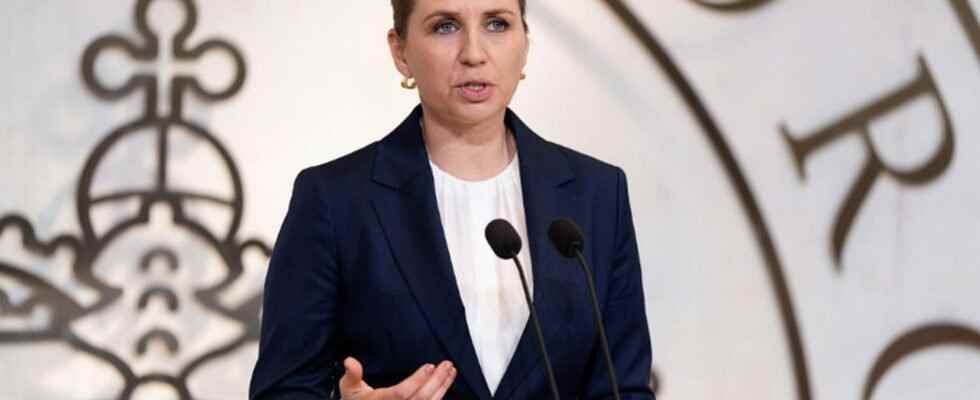Despite the omnipresence of Covid-19, Denmark on Tuesday becomes the first country in the European Union to lift all its restrictions, considering itself able to do so thanks to its high vaccination coverage and the lesser severity of the variant. Omicron.
After a first attempt of two months between September and November, masks, health passes and reduced openings of bars and restaurants will once again become ancient history in the Nordic kingdom.
“I’m very happy that it’s over tomorrow. It’s good for city life, nightlife, just being able to be outside longer,” 17-year-old high school student Thea Skovgaard told AFP on Monday.
Nightclubs reopen on Tuesday, gauges disappear too. Very few restrictions remain in place on entry into the country, only for unvaccinated travelers arriving from a country outside the Schengen area.
An almost total relaxation which comes as new cases in Denmark are around 40,000 to 50,000 every day. This is a record level of almost 1% of the 5.8 million inhabitants of the Scandinavian country.
“We have an extremely high number of adults vaccinated with three doses, that’s our secret,” says epidemiologist Lone Simonsen, a professor at Roskilde University near Copenhagen.
More than 60% of Danes received a booster dose — compared to just under 45% in the rest of the European Union. Including recent Covid cases, health authorities estimate that 80% of the population is protected against severe forms.
“With Omicron, which is not a serious disease for vaccinees, we think it is reasonable to lift the restrictions,” continues Ms Simonsen.
The circulation of the variant should also lead to a longer-lasting immunity, making it possible to better withstand future waves, estimates the academic.
After two years of the pandemic, this strategy is supported by the majority of the country. 64% of Danes trust the government’s health policy, according to a poll published Monday by the daily Politiken.
– Empower –
It’s time for everyone to take responsibility, says Ms. Simonsen.
“Without a health pass, there is a change of responsibility: the Danes are increasingly using self-tests at a time when the number of antigens available is decreasing. In this way, symptomatic people will know if they are infected and can stay at home if necessary,” says the epidemiologist.
It is still “recommended” to isolate oneself for four days in the event of a positive test, according to the National Health Agency, but contact cases are no longer forced into any quarantine.
Wearing a mask and the health pass are also recommended for hospital visits.
Optimistic, the authorities are not counting on new closures but are advocating caution.
“We cannot give guarantees when it comes to biology,” admitted the head of government, Mette Frederiksen, who announced last week this return “to life before”.
“It’s really nice that it’s over, but are we still going to live without restrictions now? I doubt it,” admits Cille Hjort, a saleswoman in a fast food restaurant, impatient to hear her customers speak without mask.
This is not the first time that the Scandinavian kingdom has bet on a return to normality. On September 10, Denmark lifted the restrictions before reintroducing the health pass in early November.
Closed just before Christmas, museums, cinemas and performance halls were able to reopen in early January.
Faced with a lower level of intensive care hospitalizations than in previous waves, several European countries such as France or the United Kingdom have announced considerable easing or the lifting of most of their restrictions, despite levels of cases. very high.
“After two years of the pandemic, populations in most countries have reached high levels of immunity, whether through the vaccine or naturally. That’s how it ends if you judge from what ‘we’ve seen in pandemics in the past,” concludes Ms. Simonsen.
On a European scale, the WHO estimates that 73% of the population have contracted Covid since the beginning of 2020.
All rights of reproduction and representation reserved. © (2022) Agence France-Presse
